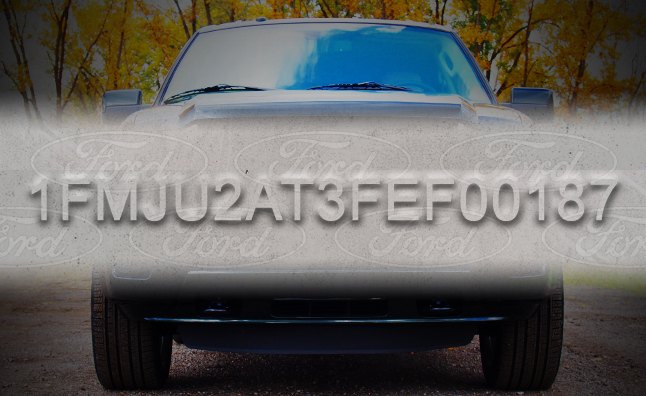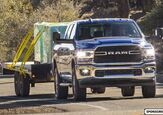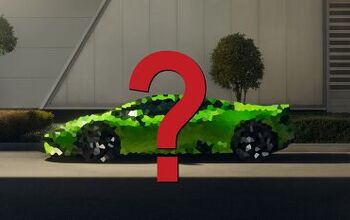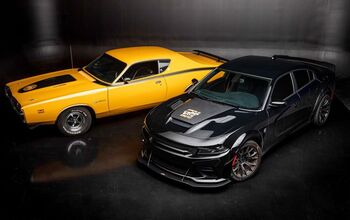What Does a VIN Do?

Cars and trucks manufactured today receive a vehicle identification number (VIN). These complex alpha-numeric identifiers may seem completely random but in fact they contain a treasure trove of information.
These 17-character chains describe in surprising detail the vehicle they’re attached to, highlighting things like the manufacturer that built it, the engine that’s under the hood and even which plant it was assembled in. But things weren’t always this structured and orderly.
History Lesson
According to Federal Motor Vehicle Safety Standard (FMVSS) 115 Part 565, since 1954 American manufacturers were required to use a VIN to identify each vehicle they built. But beyond this obligation there was no standardization and as a result the numbering schemes used by different automakers varied.
To alleviate this potentially confusing issue it was required beginning in 1969 that each passenger car have a VIN permanently “sunk or embossed” on a part of the vehicle that was clearly visible while standing at the driver’s side windshield pillar. The number used was not allowed to be repeated for 10 years.
Of course this arrangement still left a lot to be desired so the rule-makers went at it again. Eventually they came up with the system we have today.
VINs were finally standardized across the industry starting in the 1981 model year, blossoming into the 17-character jumble many drivers are familiar with. Every passenger car, multi-purpose passenger vehicle, truck, bus, trailer, incomplete vehicle and motorcycle must contain a VIN. Under this system a manufacturer is forbidden to repeat a number for 30 years.
System VINdication
With all of that background information out of the way let’s walk through what each number and letter represents. As an example let’s looks at a press vehicle I recently evaluated. Its VIN is pretty typical and at first glance confusing: 1FMJU2AT3FEF00187.
Breaking it down, the initial three characters form what’s called the World Manufacturer Identifier. The first digit shows where this car or truck was built. In this case a “1” indicates it was made in the good ol’ US of A. The letter “F” reveals it’s a Ford and the third character, an “M,” points out that it’s a sport utility vehicle.
In this case the fourth character is the letter “J,” which depending on the vehicle type deals with restraint systems and braking technology. Our SUV has standard binders with a whole bunch of airbags and a Gross Vehicle Weight Rating (GVRW) between 6,001 and 10,000 pounds. Simple enough.
And now with the fifth character, the letter “U,” we learn what kind of SUV this actually is. If you haven’t guessed it’s an Expedition. A number “2” in the sixth spot shows that this rig is a high-falutin’ limited model. The letter “A” in this VIN’s seventh slot indicates it’s a truck (like we didn’t know that already).
The eighth character deals with a vehicle’s powertrain. Our Expedition has a “T” in this position, which in Ford parlance corresponds to a 3.5-liter EcoBoost V6 engine.
Next up in the ninth spot is something known as the check digit. Curiously this figure has nothing to do with the vehicle, it’s simply there to mathematically verify on the accuracy of the VIN. Moving on …
The 10th spot reveals the model year a vehicle is. Here an “F” shows that the Expedition in question is a 2015, meaning it’s shiny and brand new.
The 11th character is the plant location code. A letter “E” in this slot corresponds to Ford’s Kentucky Truck facility, which is also home to their Super Duty lineup as well as the Lincoln Navigator.
Wrapping things up the final six characters serve as a production-sequence figure, essentially representing the build number of the vehicle. With F00187 as its digits this seems to be one of the first 2015 Expeditions that came off the line.
Interestingly there are three things VIN numbers DO NOT contain. The letters “I,” “O” and “Q” are forbidden because they can easily be confused with the digits “0” and “1.”
Keep in mind things vary from manufacturer to manufacturer. A Buick VIN for instance may not line up exactly with our Expedition’s, likewise this one probably varies slightly from Honda and BMW vehicle identification numbers. If you’re curious to find out precisely what your car or truck’s VIN means there are a variety of decoders on the internet.
GALLERY: 2015 Ford Expedition
Discuss this story on our Ford Forum

Born and raised in metro Detroit, Craig was steeped in mechanics from childhood. He feels as much at home with a wrench or welding gun in his hand as he does behind the wheel or in front of a camera. Putting his Bachelor's Degree in Journalism to good use, he's always pumping out videos, reviews, and features for AutoGuide.com. When the workday is over, he can be found out driving his fully restored 1936 Ford V8 sedan. Craig has covered the automotive industry full time for more than 10 years and is a member of the Automotive Press Association (APA) and Midwest Automotive Media Association (MAMA).
More by Craig Cole










































Comments
Join the conversation